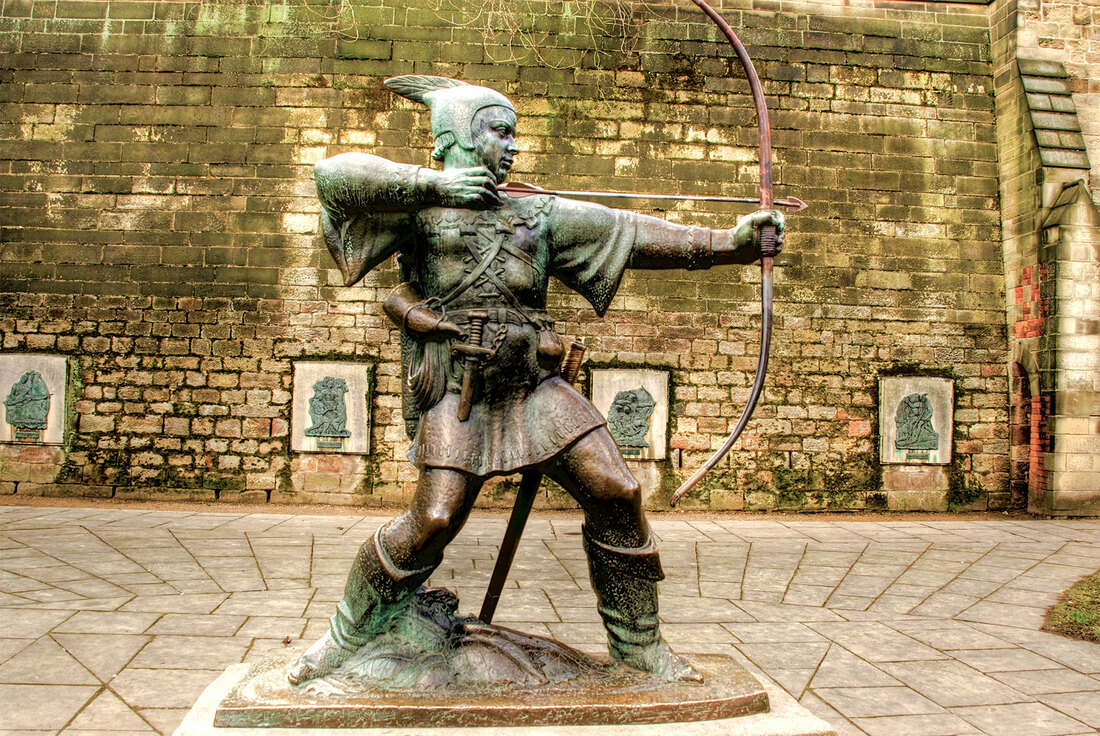...THAT YOUR ENGLISH MEDIEVAL ANCESTORS WOULD MOST LIKELY HAVE BEEN TRAINED IN THE USE OF THE LONGBOW. bY LAW. The ‘bow and arrow’ has etched itself into English folklore. The legend of ‘Robin Hood’ and his trials and tribulations in Nottinghamshire’s ‘Sherwood Forest’ is a testament to that! Indeed, the English Army won some key battles in medieval history - such as Falkirk in 1298 and Agincourt in 1415 - due largely to their proficiency, skill and experience with the longbow. However, did you know that if you have English ancestry dating back to this period, then it is highly likely that you have ancestors who used the longbow, even if they didn’t fight in any battles during this period? This is because English men during Medieval times were compelled to use the longbow - by law. In 1285, archery targets were set up in every English town by King Edward I as part of the 1285 ‘Statute of Winchester’. To take this a step further, King Edward III mandated in 1363 that archery practice was mandatory on every feast day, Sunday and holiday for adult men. Therefore, by law, every English man able to do so had to take part: … every man ... if he be able-bodied, shall, upon holidays, make use, in his games, of bows and arrows... and so learn and practise archery. The reason for this is clear. The longbow had largely transformed the nature of warfare by this point in time. English Kings wanted (and needed!) to be able to call upon a reservoir of talented longbowmen from across the realm during times of War, which were pretty frequent during the Hundred Years' War, 1337 to 1453. Therefore, even if your English ancestors were fortunate enough to escape the horrors of the medieval battlefield, it is highly unlikely that they managed to elude the use of the longbow.
0 Comments
Leave a Reply. |
Categories
All
Archives
April 2024
|
 RSS Feed
RSS Feed